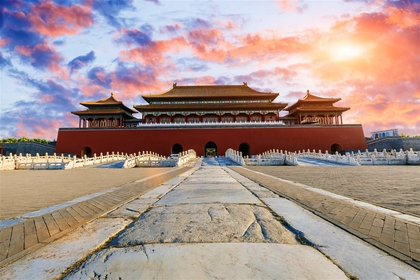China
Updated:
7 Sep 2020
China , officially the People's Republic of China (PRC), is a country in East Asia and is the world's most populous country, with a population of around billion in 2017. Covering approximately it is the third largest country by area. Governed by the Communist Party of China, the state exercises jurisdiction over 22 provinces, five autonomous regions, four direct-controlled municipalities (Beijing, Tianjin, Shanghai, and Chongqing), and the special administrative regions of Hong Kong and Macau. China emerged as one of the world's first civilizations, in the fertile basin of the Yellow River in the North China Plain. For millennia, China's political system was based on hereditary monarchies, or dynasties, beginning with the semi-mythical Xia dynasty in 21st century BCE. Since then, China has expanded, fractured, and re-unified numerous times. In the 3rd century BCE, the Qin reunited core China and established the first Chinese empire. The succeeding Han dynasty, which ruled from 206 BCE until 220 CE, saw some of the most advanced technology at that time, including papermaking and the compass, along with agricultural and medical improvements. The invention of gunpowder and movable type in the Tang dynasty (618–907) and Northern Song (960–1127) completed the Four Great Inventions. Tang culture spread widely in Asia, as the new Silk Route brought traders to as far as Mesopotamia and the Horn of Africa. Dynastic rule ended in 1912 with the Xinhai Revolution, when the Republic of China (ROC) replaced the Qing dynasty. China, as a whole, was ravaged by feudal warlordism and Japan during World War II. The subsequent Chinese Civil War resulted in a division of territory in 1949 when the Communist Party of China led by Mao Zedong established the People's Republic of China on mainland China while the Kuomintang-led nationalist government retreated to the island of Taiwan where it governed until 1996 when Taiwan transitioned to democracy. The political status of Taiwan remains disputed to this day. China is a unitary one-party socialist republic and is one of the few existing socialist states. Political dissidents and human rights groups have denounced and criticized the Chinese government for human rights abuses, suppression of religious and ethnic minorities, censorship and mass surveillance, and cracking down on protests such as in 1989. The Chinese government says that the right to subsistence and economic development is a prerequisite to other types of human rights and that the notion of human rights should take into account a country's present economic level. Since the introduction of economic reforms in 1978, China's economy has been one of the world's fastest-growing with annual growth rates consistently above 6 percent. According to the World Bank, China's GDP grew from $150 billion in 1978 to $12.24 trillion by 2017. According to official data, China's GDP in 2018 was 90 trillion Yuan ($13.5 trillion). Since 2010, China has been the world's second-largest economy by nominal GDP, and since 2014, the largest economy in the world by purchasing power parity. China is also the world's largest exporter and second-largest importer of goods. China is a recognized nuclear weapons state and has the world's largest standing army, the People's Liberation Army, and the second-largest defense budget. The PRC is a permanent member of the United Nations Security Council as it replaced the ROC in 1971, as well as an active global partner of ASEAN Plus mechanism. Since 2019, China has the highest number of rich people in the world. China has been characterized as a potential superpower, mainly because of its massive population, economy, and military.




